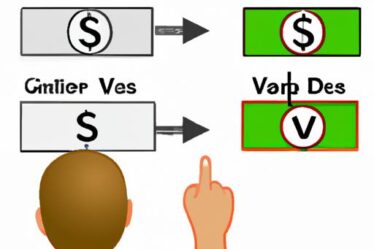
Introduction
Home equity loans serve as a beacon of financial hope for homeowners, offering a pathway to tap into the value of their property. In essence, a home equity loan allows you to borrow against the equity you’ve built in your home over time. But what exactly does this mean for you, a resident of New Jersey? Let’s delve into the world of home equity loans and explore the significance they hold for homeowners in the Garden State.
As a homeowner in New Jersey, your property isn’t just a place to hang your hat; it’s a valuable asset that can open doors to financial opportunities. Understanding the ins and outs of home equity loans is crucial in harnessing the full potential of your property’s worth. Let’s uncover the nuances of home equity loans and how they can benefit you in the vibrant state of New Jersey.
Understanding Home Equity Loans in NJ
What are Home Equity Loans?
Home equity loans, also known as second mortgages, allow homeowners to borrow against the equity they have built up in their property. This type of loan provides a lump sum of money that is secured by the value of the home. Essentially, it’s a way to access cash by leveraging the equity you’ve accumulated through mortgage payments and property value appreciation.
How do Home Equity Loans Work in New Jersey?
In New Jersey, home equity loans function similarly to those in other states. Homeowners can apply for a loan based on the equity in their property, with the home serving as collateral. The loan amount is determined by factors such as the home’s value, outstanding mortgage balance, and creditworthiness of the borrower. Interest rates and repayment terms vary based on the lender and individual financial circumstances.
Eligibility Requirements for Home Equity Loans in NJ
To qualify for a home equity loan in New Jersey, homeowners typically need to have a minimum amount of equity in their property, usually around 15% to 20%. Lenders also consider factors such as credit score, income stability, and debt-to-income ratio when determining eligibility. Meeting these requirements is essential to secure a home equity loan and unlock the financial benefits it offers.
Benefits of Home Equity Loans in NJ
Lower Interest Rates
When it comes to borrowing money, the interest rate plays a significant role in determining the overall cost of the loan. Home equity loans in New Jersey often come with lower interest rates compared to other loan options such as personal loans or credit cards. This means that you can access the funds you need at a more affordable rate, potentially saving you money in the long run.
Tax Advantages
One of the notable perks of home equity loans in New Jersey is the tax advantages they offer. In many cases, the interest paid on a home equity loan may be tax-deductible, providing homeowners with potential tax savings. By leveraging this tax benefit, you can optimize your financial strategy and make the most of your home equity loan.
Flexibility in Fund Usage
Unlike some other types of loans that come with restrictions on how the funds can be used, home equity loans in New Jersey offer flexibility in fund usage. Whether you’re looking to renovate your home, consolidate debt, or cover unexpected expenses, a home equity loan allows you to access the funds and use them in a way that aligns with your financial goals. This versatility makes home equity loans a versatile and practical financial tool for homeowners in New Jersey.
How to Obtain a Home Equity Loan in NJ
Steps to Apply for a Home Equity Loan
Embarking on the journey to secure a home equity loan in New Jersey requires a strategic approach. Firstly, assess your financial situation and determine the amount you wish to borrow. Next, research and compare various lenders to find the best fit for your needs. Once you’ve identified a suitable lender, initiate the application process by filling out the necessary forms and providing essential information about your property and financial standing.
Documents Required for the Application Process
As you navigate the paperwork involved in obtaining a home equity loan in NJ, be prepared to gather a series of documents to support your application. Common requirements include proof of income, such as pay stubs or tax returns, as well as documentation related to your property, such as a mortgage statement and property appraisal. Additionally, you may need to provide identification, bank statements, and other financial records to strengthen your application.
Factors to Consider When Choosing a Lender in New Jersey
Selecting the right lender for your home equity loan journey in New Jersey is a pivotal decision that can significantly impact your borrowing experience. Consider factors such as interest rates, loan terms, fees, and customer service when evaluating potential lenders. Look for a reputable institution with a track record of providing competitive rates and excellent customer support to ensure a smooth and positive lending experience.
Risks and Considerations of Home Equity Loans in NJ
Potential Risks Associated with Home Equity Loans
When considering a home equity loan in New Jersey, it’s essential to be aware of the potential risks that come with borrowing against your home’s equity. One primary risk is the possibility of defaulting on the loan, which could lead to foreclosure on your property. Additionally, the fluctuating housing market can impact the value of your home, affecting the amount of equity available for borrowing. Understanding these risks is crucial in making an informed decision about taking out a home equity loan.
Things to Consider Before Taking Out a Home Equity Loan in NJ
Before diving into a home equity loan in New Jersey, take a step back and evaluate your financial situation. Consider your long-term financial goals, your ability to make monthly payments, and any potential changes in income or expenses. It’s also important to compare loan offers from different lenders to ensure you’re getting the best terms and rates for your specific needs. By carefully considering these factors, you can mitigate risks and make a sound financial decision.
Alternatives to Home Equity Loans in New Jersey
While home equity loans can be a valuable financial tool, they may not be the best option for everyone. In New Jersey, alternative financing options such as personal loans, lines of credit, or refinancing your mortgage could provide a more suitable solution based on your financial goals and circumstances. Exploring these alternatives and weighing the pros and cons of each can help you make an informed decision that aligns with your financial objectives.
Conclusion
In conclusion, home equity loans in New Jersey present a unique opportunity for homeowners to leverage the equity they’ve built in their properties. By tapping into this resource, individuals can access funds for various purposes, whether it be home renovations, debt consolidation, or other financial needs. It’s essential to weigh the benefits and risks associated with home equity loans carefully before making a decision.
As you navigate the realm of home equity loans in New Jersey, remember to consider factors such as interest rates, eligibility requirements, and potential alternatives. By staying informed and making informed choices, you can make the most of this financial tool and unlock the possibilities it offers. Home equity loans can be a valuable asset in your financial portfolio, providing a safety net and a means to achieve your financial goals in the dynamic landscape of New Jersey’s real estate market.


